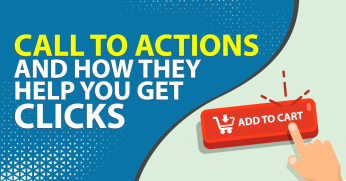
Choosing the Right Social Media Platform
You can’t just have some social media platforms to choose from and then post the same graphics on each! Social media has a lot of influence over buyer trends. Nowadays, part of marketing your business means having a solid social media presence. To get your business to stand out among the social media marketing crowd, one must first choose a social media platform that matches your marketing strategy.
There are advantages and disadvantages to using social media as a channel for advertising your business, that’s for sure, but it certainly is a great way to get attention. Most people spend their online time on various social media sites — about 145 minutes, to be exact.
Now no two platforms are exactly alike; they have differences in layout, content specialization, reach, and so on. As a result, the marketing strategy you choose for one social media platform may fall flat with another. Avoid spending more time and effort than necessary on a social media platform that does not jive with your marketing strategies. Instead, think carefully about which one — or ones — suits the needs of your company best.
Considering Your Social Media Marketing Strategy
In business, innovation is key. It is no less true with your marketing strategy. Consumers respond to uniqueness.
For example, Denny’s, the diner-style restaurant chain, posts hilarious breakfast food-themed meme images on its Tumblr and Twitter accounts.
One should contemplate many factors even before settling on the social media platforms to utilize when marketing your business. Check out this article for social media marketing tips!
What is a Marketing Strategy?
A marketing strategy is basically making people aware of your brand. So, a Marketing Strategy means planning for business goals you want to accomplish in the long term. But, how do you make people aware of your brand? One way to do this is to utilize social media in concert with your marketing strategy.
Here are a couple of questions to ponder:
- What is the product or service you intend to offer?
- What is a feature — of your product or your strategy — that makes you stand out among your competitors?
- Who do you need to impress?
- What are your marketing goals?
- What does your data tell you?
- How are you going to sell your brand to your customers?
Now here are a few tips on narrowing down the pool of social media platforms you’ll choose:
-
Cull your options down to a minimum.
Breathe a sigh of relief because there is no need to have a presence on every platform on the world wide web! Instead, you will want to focus on having a social media presence on three to five platforms at most. Statista says that the average social media user has more than eight social media accounts, but stretching yourself too thin across too many platforms is a recipe for disaster.
-
Know thyself.
What kind of company are you? Business-to-Business (or B2B) companies have better luck on social media platforms with a higher concentration of professional users — such as LinkedIn. For B2C or Business-to-Consumer companies, the more prolific platforms that tend to host photo or video content are their best bet. Popularized platforms like Twitter and Instagram, etc., tend to fall under this category.
-
Have data — lots and lots of it.
Once you have figured out your target audience, you can pair them up with the social media platform(s) most appropriate to them. As a company relies on keeping its customers happy, you must know your audience. You have to know where they spend their time online, understand what their concerns are. Data gathered from things like customer satisfaction surveys are crucial to this step.
-
Make your approach bespoke.
Tailor your approach to your company and its services and the personality of your marketing strategy. For instance, the Frito Lay company holds contests where buyers can suggest and create new flavors. They even had one called ‘Turn Up the Flavor’ which partnered with famous artists to produce chips with flavors that tasted like a genre of music. Likewise, GoPro partnered up with thrill-seekers whose video footage of their adventures doubled as subtle advertising for the brand. In turn, this influenced adrenaline junkies who weren’t considering using a GoPro before. A paper towel brand called Bounty placed oversized figures of messes like a spilled cup of coffee alongside their products instead of having a giant billboard.
Time to pick your poison
So keeping all of the above in mind, which social media platform should you choose for your social media marketing strategy? Well, that’s really up to you. You probably even have some tools that’ll help you handle your multiple socials all lined up. If you haven’t already decided, why not take a look at what these platforms have to offer you and your business?
Here is a list of the most popular social media platforms to choose from:
-
Facebook.
For starters, everyone and their mother has a Facebook account. Its monthly active users clock in at around 2.85 billion; therefore, it’s got a wide range of users across all age groups. In addition, there are pages upon pages of content dedicated to businesses, both big and small. It doesn’t do much for reaching out to new customers, but it is best for helping cultivate your already-present customer base.
-
Twitter.
This one is great for raising awareness about your brand. It hosts not only text posts but also includes photos and video. Users can hone in very specifically on some keywords using hashtags when they are looking for something specific. It’s also got a wide variety of users (though not so wide as Facebook), most of them being people under 50.
-
Pinterest.
Pinterest is great if you have products or graphics that catch the user’s eye. It is a platform that relies on showing off content that visually appeals to users. From flower arrangements to interior decoration layouts to aesthetically pleasing scenery, you can find almost anything there.
-
YouTube.
One does not even have to be signed in to YouTube to view content, and there is a large variety of topics and content ready to be viewed. From How-tos to Life Hacks to Product Unboxing videos, there is a niche out there somewhere that your company can take advantage of.
-
LinkedIn.
It is the go-to for jobs and other job-related matters, of course. However, this particular platform is primarily for the more professional crowd, meaning people over 20. It may not get you customers per se, but you will get your brand out there among competitors and potential partners alike.
-
Instagram.
Instagram is much like Pinterest, except that one can then start a discussion upon viewing a particular post. It’s visible even to people who are not involved in the conversation. Meaning, a potential customer can see how the company engages with its customers, right beside the photo that attracted their attention.
-
TikTok.
Now this one may be the newer kid on the block, but it is still an excellent place to show off content of a more visual nature, as with Instagram and Pinterest. On this social media platform, videos, notably dance challenges and humorous prank trends, are all the rage. It is one of the more recent platforms to come into popularity; it is generally more popular with the younger generation.
-
Reddit.
Reddit is something like an online forum with a twist. Questions, links, and images submitted by users are then discussed with other fellow users. The Reddit users then upvote or downvote posts depending on their personal opinions. In addition, it hosts many forums devoted to particular topics ranging from broader subjects to more niche matters.
Are you still having a hard time choosing the right social media platform for your company? You don’t have to worry about that. Social media experts can help you choose the right social media platform for your business and industry. If you have no idea where to start yet, you can always rely on leading social media marketing services in the Philippines!





















Comment 0